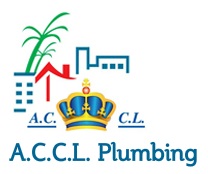As the world shifts towards sustainability, traditional copper and PVC pipes are being reevaluated for their environmental impact. Fortunately, numerous eco-friendly alternatives are now available, offering improved durability, recyclability, and reduced carbon footprints. Let’s explore some sustainable pipe materials that are changing the game.
Top Sustainable Pipe Materials
– High-Density Polyethylene (HDPE) Pipes: Known for their exceptional strength, flexibility, and full recyclability, HDPE pipes are a popular choice for water supply, gas distribution, and industrial applications. They resist corrosion, chemicals, and can withstand extreme temperatures.
– Cross-Linked Polyethylene (PEX) Pipes: PEX pipes are flexible, durable, and resistant to scale and chlorine. They’re ideal for plumbing and water distribution systems, offering reduced noise and fewer leaks.
– Polypropylene (PP) Pipes: PP pipes are biocompatible, heat-resistant, and highly recyclable. They’re suitable for potable water systems and industrial applications where hygiene and durability are crucial.
– Stainless Steel Pipes: With exceptional strength and corrosion resistance, stainless steel pipes are a long-lasting option for plumbing systems. They’re 100% recyclable, making them a sustainable choice.
– Cast Iron Pipes: Cast iron pipes are durable, long-lasting, and 100% recyclable. They’re ideal for sewage and drainage systems, offering excellent strength and resistance to wear.
– Bamboo Pipes: Bamboo is a sustainable, biodegradable, and renewable resource. Bamboo pipes are suitable for low-pressure applications, such as irrigation systems, and offer natural antibacterial properties.
– Clay Pipes: Clay pipes are a traditional and eco-friendly option, made from natural materials and fired at high temperatures. They’re durable, biodegradable, and suitable for sewer and drainage systems.
– Recycled Metal Pipes: Recycled metal pipes reduce waste and conserve natural resources. They’re durable, long-lasting, and can be recycled again at the end of their life cycle.
– Bioplastics: Bioplastics are made from renewable sources like corn starch, sugarcane, or potato starch. They’re biodegradable, non-toxic, and offer a sustainable alternative to traditional plastics.
Benefits of Sustainable Pipe Materials
– Reduced environmental impact
– Increased durability and longevity
– Improved recyclability and reduced waste
– Enhanced water conservation and efficiency
– Lower energy consumption and carbon footprint
Making the Switch
When choosing sustainable pipe materials, consider factors like durability, maintenance, and compatibility with your existing plumbing system. It’s essential to evaluate the environmental impact, cost, and benefits of each material to make an informed decision. By embracing sustainable pipe materials, you’ll not only reduce your environmental footprint but also contribute to a healthier and more sustainable future.

